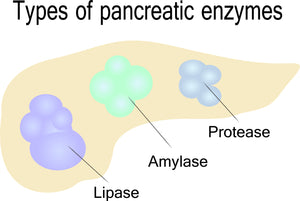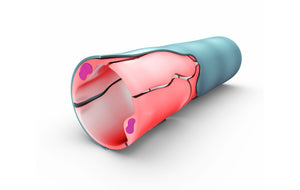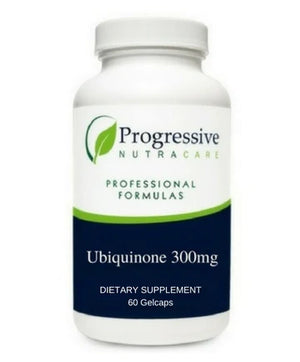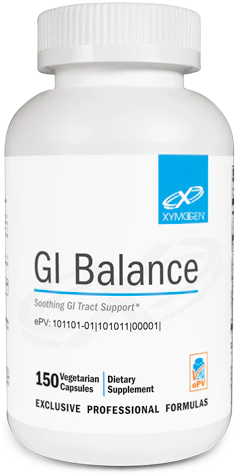Need Energy? Last, Don’t Crash- The World of Adaptogens

Whether you’re a healthy adult or suffer from condition related fatigue or stress, you’ve likely had days when you just lacked pep. Felt flat. Wired but tired. Nerves too jangled to get anything done, but too exhausted to really relax as well. The modern world has accelerated the stress on our minds and bodies. The likelihood that our Adrenal- Pituitary Axis is being pushed too hard and so buckles under the strain is ever more likely, especially as we mature and our lives get ever more complicated and stressful. Most of us like immersing ourselves in life- working toward goals, managing families, spending time with loved ones, but we don’t like getting overwhelmed, stressed out and exhausted and robbed of the enjoyment we should have for these things. Things may seem crazier now than they’ve ever been- and maybe they are- but that doesn’t mean that people, and culture haven’t wrestled with stress, fatigue, and feeling overwhelmed before. Most likely these have been fundamental problems intrinsic to human existence, and peoples around the world have looked to everything from exercise, meditation, ceremonies, dream states, drugs, to adaptogens. Wait, what was that last one? Adaptogens? What are they?
Adaptogens are substances derived from plants that can “non-specifically enhance the human body” (Liao, et al, 2018). These substances come from a range of plants, with the most important being Panax Ginseng and others in the Ginseng family including Eleuthero, Schisandra, Ashwagandha, Holy Basil, and Rhodiola. These plants have been utilized by numerous cultures to combat the effects of stress, anxiety, and fatigue- particularly when those effects seem to be generalized and not from one specific event. Likewise, a hallmark of these adaptogens is that they work as general mood enhancers, stress relievers, and energy boosters, sometimes through many different pathways. Modern interest in adaptogens stems in some ways from the interest by Soviet scientists in World War 2 in exploring natural compounds used by tribal cultures within the Soviet Union to help combat stress and exhaustion. The thought was that soldiers on the battlefield would benefit from compounds that generally increased energy, clarity of thought, and decreased stress. In the course of these experiments, the Soviets coined the word “adaptogen”, and defined these substances parameters: “first, adaptogens must to be non-specific and must assist the human body in resisting a wide range of adverse conditions, such as physical, chemical or biological stress. These may include environmental pollution, climate change, radiation, infectious diseases, and interpersonal disharmony. Second, adaptogens must maintain homeostasis in humans, that is, these substances can offset or resist physical disorders caused by external stress. Third, adaptogens must not harm the normal functions of the human body.” (also Liao, et al, cited above). These scientists were initially interested in Schisandra, but they soon moved on to include other adaptogens like Ginseng. More than 80 years of studies have further refined the definition and expanded the research into what they may be able to do. Because of their very nature, they exert complex actions on the stress systems of the body, without doing harm. Much research has gone into figuring out their methods of action. By 1998, the FDA had “defined an adaptogen as a new kind of metabolic regulator that has been proved to help in environmental adaptation and to prevent external harms.” (also Liao, et al, cited above). A landmark article in 2010 by Panossian and Wikman clarified this work on adaptogens and stated that “Studies on animals and isolated neuronal cells have revealed that adaptogens exhibit neuroprotective, anti-fatigue, antidepressive, anxiolytic, nootropic and CNS stimulating activity. In addition, a number of clinical trials demonstrate that adaptogens exert an anti-fatigue effect that increases mental work capacity against a background of stress and fatigue, particularly in tolerance to mental exhaustion and enhanced attention. Indeed, recent pharmacological studies of a number of adaptogens have provided a rationale for these effects also at the molecular level. It was discovered that the stress—protective activity of adaptogens was associated with regulation of homeostasis via several mechanisms of action, which was linked with the hypothalamic-pituitary-adrenal axis and the regulation of key mediators of stress response”
Wow! That’s a lot to take in. Suffice it to say that adaptogens are not merely hocus pocus that are based on no particular understanding of the human body, but that they safely affect the central nervous system to accomplish exactly what had been claimed all along- they boost, energy, decrease stress and anxiety, and all at the fundamental level involving the links between the adrenal and pituitary systems. This means, that according to the authors, adaptogens may very well naturally regulate stress hormones in such a way that baseline stress is reduced and the wearing away of energy that accompanies this is mitigated.
Sounds promising, right? Of course, these compounds are so complex that we should engage in new research, but remember that a basic principle of these natural compounds is that they should do no harm, and that they should give systematic, long-term support to the adrenal-pituitary axis. When we are low energy, or stressed, we might reach for a cup of coffee, tea, something with sugar, or even a stiff drink. These all have one thing in common- they merely give a temporary boost to the body, often at the cost of a crash that comes later that makes us feel even worse unless we continue the cycle of feeding the body these substances. Adaptogens on the other hand have been investigated for a more enduring effect: “Furthermore, some precise scientific experiments demonstrated that adaptogens can enhance the resistance of the human body against various external stimuli as non-specific regulators. Adaptogens function mainly by affecting the hypothalamic–pituitary–adrenal (HPA axis) in response to stimulation by external stress. Primary adaptogens can not only maintain or recover homeostasis and allostasis but can also promote anabolic recovery. Primary adaptogens can produce positive stress response and the associated hormone expression. Primary adaptogens strengthen the functioning of each systems, promote optimal response, promote recovery of function, and help regulate energy use by improving the function of neuroendocrine system and enhancing cellular energy transfer, which can make body utilize oxygen, glucose, lipids and proteins very effectively, thus providing us with a steady supply of energy” (Liao, et al, cited above, referencing Yance, et al, 2007). This steady supply of energy is a far cry from the spike and crash cycle given us by caffeine, for example.
We’ve mentioned a number of adaptogens. Is there a difference among them as to effect? Are some more useful than others? Can you combine adaptogens? Let’s take the last question first. Yes, you should be able to combine adaptogens for supplementation. A blend that includes Panax Ginseng, Ashwagandha, Holy Basil, Rhodiola, and Eleuthero would seem to be appealing, and would combine many of the most studied adaptogens. Let’s take a look at some conditions and which adaptogens have been studied for their effectiveness regarding them. As Panossian and Wikman write (cited above), “The most important characteristics of adaptogens, such as stress-protection and a stimulatory effect are common to all adaptogens. However, the effects may differ under various circumstances”. We’ve already talked a bit about stress and lack of energy, let’s look at this more closely and some other potential uses as well.
Anti-stress
We’ve talked about some studies that have involved adaptogens and their possible ability to decrease stress. It’s also been noted that most or all adaptogens may have this ability, or at least have exhibited that in animal studies. Panax Ginseng, Eleuthero, North American Ginseng (Panax quinquefolius), and Rhodiola have all been linked to anti-stress activity through their studied ability to modulate adrenal gland hormone releases: “Adaptogens can increase the effectiveness of adrenal gland secretion, thereby abolishing excess hormone production [8]. Other studies can prove this statement: In 2001, B.T.Gaffney found that the suggested that Panax ginseng inhibits 11-beta hydroxysteroid dehydrogenase one and Eleutherococcus senticosus inhibits catechol-O-methyl transferase, both of which reside in close proximity to stress hormone receptors and catalyze the degradation of stress hormones into inactive compounds [9]. In the absence of stress, adaptogens can accelerate the closure of the adrenal gland. Furthermore, adaptogens can increase cellular energy levels and prevent oxidative damages, leading to the maintenance of normal adrenal function.” (Liao, et al, cited previously).
Increasing Energy
As noted earlier, there have been indications that adaptogens may act in such a way as to directly stimulate the central nervous system. If this is borne out, then they could have a role in generating an uplifting sense of energy: “Apparently, stimulating (acute/single dose effect) and tonic (effect of repeated/multiple administration) effects of adaptogens are actually consequences of their stress-protective activity. CNS stimulating and tonic effects of adaptogens are well documented in numerous publications and reviewed in Phytomedicine [77]. In contrast to conventional stimulants, such as sympathomimetics (e.g., ephedrine, fenfluramine, phentermine, prolintane) and general tonics, the adaptogens don’t possess addiction, tolerance and abuse potentials, they don’t impair mental function and lead to psychotic symptoms in long term use, Table 4. Their clinical and pharmacological effects are due to a different mode of action. Their stimulating effect is more pronounced against a background of fatigue and stress.” (Liao, et al, again). The review cites Rhodiola, Eleuthero, and Schisandra in the article by Panossian and Wagner, 2005. This means that adaptogens may offer a practical and long-term solution to stimulation that is much more natural and safer than current methods.
Detox
Not only have adaptogens been found to be generally safe, because of the way that adaptogens work, some of them, including Schisandra, Eleuthero, and Rhodiola have been found to exert an anti-toxic effect: “The adaptogens Eleutherococcus senticosus, Rhodiola rosea and Schisandra chinensis were reported to be safe in acute and subacute toxicity studies. Moreover, adaptogen induced state of non-specific resistance to highly toxic chemicals (e.g., chlorophos, phosphorus, cyclophosphane, strychnine, aniline, sodium nitrite, narcotics like sodium barbital, hexenal, chloralhydrate, benzene, acetone, ether, etc.) and microbes demonstrated in many pharmacological/toxicological studies [28], actually implies that they have an anti-toxic activity.” (Panossian and Wikman, cited above). More study is needed, but these compounds do seem to generate a protective effect with toxins and possibly could reverse toxicity in some cases.
Other Potential Uses
Adaptogens may open up a world of other possibilities once more research is in. The fact that they seem generally quite safe and work on so many different mechanisms in the body may mean they have many potential uses, and perhaps without the downside of some of the current modalities for some conditions. Here is a possible glimpse into the future by Panossian and Wikman (cited earlier) in the conclusion of their study: “It was suggested that adaptogens have not only specific therapeutic effects in some stress-induced and stress-related disorders, but will also have an impact on the quality of life of patients when implemented as adjuvants in the standard therapy of many chronic diseases and pathological conditions (e.g., post-surgery recovery, asthenia, congestive heart failure, chronic obstructive pulmonary disease). It may be suggested that adaptogens have potential use in age related disorders, such as neurodegenerative diseases, and cardiovascular diseases. Thus, elderly people may be able to maintain their health status on a normal level, improve their quality of life and may increase longevity. However, further research may be needed to evaluate the efficacy of adaptogens as geriatrics and to elucidate molecular mechanisms of action of these complex herbal extracts and their active principles.”
It’s entirely possible that adaptogens will become known as premiere anti-aging compounds. For now, there is a lot of research on the role of adaptogens as stress relievers and energy restorers, and numerous studies that have not only studied their efficacy but their safety as well.
- Tags: Adrenal Article Mental Health
- Robert Thomas







Comments 0